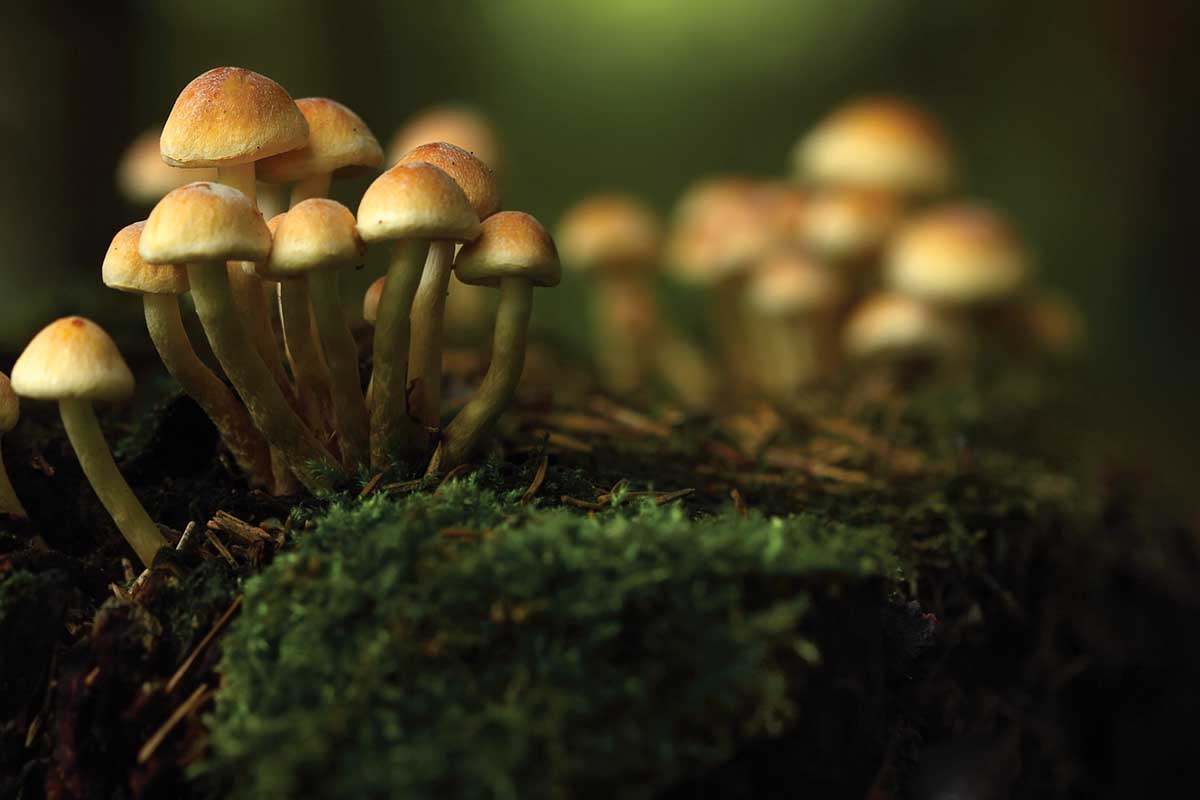Advertisement
A Trip into New Possibilities for Mental Health
Exploring the potential of psychedelic mushrooms for medicinal use
Fact-Checked
This article has been written and fact-checked by experts in the field.

Psychedelic mushrooms may very well be the next frontier in mental health treatment. More and more research is examining their potential in treating a range of mental health conditions, from depression and anxiety to PTSD, OCD, addiction, and beyond.
Scientists haven’t yet fully uncovered the finer points of their underlying mechanisms of action in the human body and brain, nor their safety or efficacy. What is clear is that the potential of psilocybin and psilocin—the psychoactive compounds in these mushrooms—could be groundbreaking.
“We’re very excited about the promising findings from clinical trials of psilocybin in the treatment of depression and other mental health conditions,” says Dr. Ishrat Husain, scientific head of the Clinical Trials Unit at the University of Toronto’s Centre for Addiction and Mental Health (CAMH) and principal investigator of a new study on the potential for psilocybin to help with treatment-resistant depression—the first ever trial to receive a Canadian federal grant to study psilocybin.
Advertisement
The basics of psychedelic mushrooms for mental health
Known commonly as magic mushrooms, these psychedelic members of the fungus kingdom—or, more specifically, the psychoactive substances they contain, psilocybin and psilocin—have been tightly controlled, and even demonized, in recent decades.
However, recent scientific study on psychedelic mushrooms is not actually a new endeavour; rather, it picks up on a research thread that was dropped in the 1960s with the initiation of the “war on drugs.”
Husain explains that psilocybin’s hallucinogenic effect is linked to the substance’s ability to stimulate the brain’s serotonin receptors. “But it also has actions on other parts of the brain,” he says. “For instance, it has anti-inflammatory actions; it reduces other factors in the brain that are thought to be degenerative; it is shown to improve connectivity between parts of the brain.”
These actions are believed to be linked to psilocybin’s demonstrated ability to provide sustained positive benefits to those struggling with certain mental health conditions—even with as little as one dose.
Still, as encouraging as recent findings have been, Husain cautions that evidence is still currently not strong enough to advise that these drugs are ready for clinical use.
Advertisement
Growing knowledge
Just one of the many research centres around the world exploring psilocybin’s medicinal possibilities, CAMH is leading a number of different studies on the substance, with one of the most important of those being Husain’s study on psilocybin for treatment-resistant depression.
“We are excited about this study because it addresses a really important question in the field: … whether the actual psychedelic effects of psilocybin are needed to induce an antidepressant or therapeutic effect,” says Husain, noting that, outside of some animal studies, this question has never been investigated.
If psilocybin is shown to help those with depression without hallucinogenic effects, it could potentially be administered to patients much more easily, without the need for the current extensive and resource-heavy patient monitoring.
Studies of this size and involving a controlled substance can be long, complex processes, but Husain is hopeful that the study—and others like it—will offer a positive sea change within the next decade.
“What we’re waiting for—which will probably happen between the next three to five years—is a large … randomized clinical trial of psilocybin for the treatment of depression, which I know is in the planning phase already; it is probably going to start soon.”
Only once large studies like this are complete for various mental health conditions—and good safety and effectiveness profiles are confirmed—will psilocybin be considered a viable treatment option for those conditions.
Advertisement
Curious about psilocybin for your mental health?
Health Canada advises patients suffering from mental health concerns to discuss potential treatment options with their health care practitioner.
Husain agrees with this position, further advising those who may be struggling with their mental health to avoid self-medicating and, instead, to seek the advice of a trained health care practitioner. “At this point, the overall message is that [psilocybin] is still an experimental treatment and self-medicating with any sort of substance—particularly one that is still illegal—is not advised.”
Current legal status
While scientific evidence for its medicinal use is encouraging, psilocybin and psilocin are still illegal in Canada under the Controlled Drugs and Substances Act, and there are no approved therapeutic products containing psilocybin available in Canada.
While this status may change in the relatively near future, currently it is only possible for individuals to legally access psilocybin through one of three pathways:
1. clinical trials
2. Health Canada’s Special Access Program
3. individual exemptions under subsection 56(1) of Canada’s Controlled Drugs and Substances Act
Natural mental health supports while the jury’s out on psychedelic mushrooms
Don’t forget about these important natural supports and strategies that are already easily available to help nurture your overall mental health.
|
Activities |
Supplements |
|
meditation |
ginseng |
|
deep breathing exercises |
ashwagandha |
|
time in nature |
eleuthero |
|
exercise |
rhodiola |
|
talk therapy (cognitive behavioural therapy) |
GABA |
|
mindfulness and visualization |
L-theanine |
|
journalling |
lemon balm |





